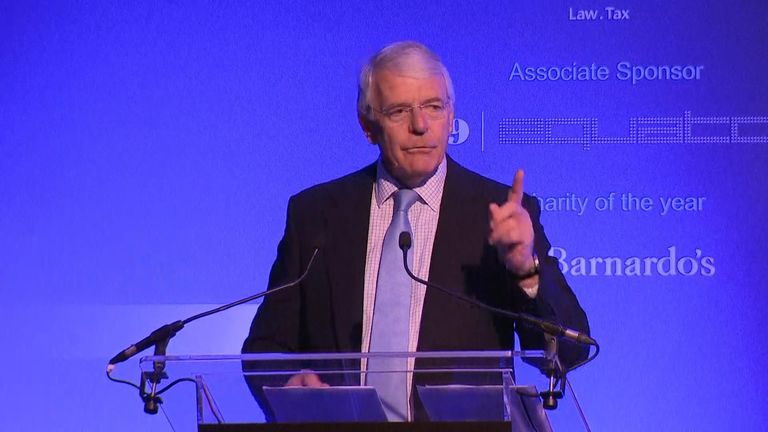By Alan McGuinness, political reporter
A judgement in one of several legal challenges against Boris Johnson's controversial decision to suspend parliament is due later, as the prime minister comes towards the end of a bruising week.
Campaigners have urged judges at the High Court in London to find that the decision to prorogue parliament for an "exceptional" length of time was an "unlawful abuse of power".
The judicial review application has been brought by businesswoman and anti-Brexit campaigner Gina Miller.
It is supported by a number of other parties, including former prime minister Sir John Major, who launched a stinging attack on the PM and his inner circle on Thursday.
A similar legal challenge in Scotland resulted in the Court of Session in Edinburgh ruling the planned suspension was lawful.
Advertisement
From next week, parliament will be suspended for five weeks, with a Queen's Speech setting out the government's agenda being held on 14 October.
:: Listen to the Daily podcast on Apple Podcasts, Google Podcasts, Spotify,Spreaker
More from Boris Johnson
The prime minister has maintained the decision was taken in order to set out his "exciting agenda" on that date, which will see the opening of a new parliamentary session.
But opponents accused Mr Johnson of trying to stop them from acting to stop a no-deal Brexit on 31 October.
In the end, MPs swiftly passed legislation which seeks to avoid a no-deal scenario.
It cleared the Commons in just one day on Wednesday – and it is expected to complete its journey in the Lords later.
The passage of the bill by MPs was quickly followed by the PM failing in a bid to get an early election.

Opposition parties want the no-deal legislation to become law before they consider supporting a snap election.
The PM said he "did not want an election at all", but "frankly I cannot see any other way".
Mr Johnson also declared he would "rather be dead in a ditch" than ask the EU for another Brexit delay.
He has also had contend with the fallout from the resignation of his brother Jo from the government, citing an "unresolvable tension" between "family loyalty and the national interest".






